The other day I was asked whether I was happy that the US President was…
French government in tatters and the financial markets want growth
The French government is in tatters after a number of the more enlightened members of parliament resigned as a protest against the mindless austerity that Hollande is imposing on his nation, which is causing the already desperate unemployment situation to worse. Le Monde ran a story (August 25, 2014) – La dernière chance du président (The last chance for the President) and said that the political season just became explosive for the President and the Prime Minister as a result of some of his senior ministers walking out in protest over the austerity obsession that Hollande has imposed on the French government. Despite all the scaremongering that financial markets love austerity and see it is a move to stability, the ‘markets’ appear to be rejecting austerity and voting for growth. We will see.
Brief synopsis of French government formation
To those who don’t follow French politics here is a quick synopsis of how the government is formed. France is currently in its Fifth Republic (created in 1958 by Charles de Gaulle).
The head of state and the executive of the government is the President (currently Francois Hollande) who is elected by universal suffrage. That is, h/she is popularly elected and serves a 5-year term. Hollande was elected in May 2012.
The President then appoints a Prime Minister, who heads the government and chooses the le Conseil des ministres (cabinet ministers). If the President and Prime Minister co-habit (that is, are from different political parties) then the ministers are chosen by the PM in liaison with the President. The Conseil des ministres is the policy formation body of the French government.
There are two houses in the Parliament – the Assemblée nationale (lower house) and the Sénat. The Députés (members) are elected by universal suffrage through a complex multi-round system.
What happened yesterday (August 25, 2014)
I wrote in the blog – Germany contracts as the French suggest defiance – that the French Minister of the Economy – Arnaud Montebourg – openly defied the President and called for an abandonment of austerity and a prioritisation of employment and output growth for government policy.
He said that the French government had become obsessed with economic austerity and “the forced reduction in fiscal deficits was an economic aberration, a financial absurdity and a political disaster which was throwing France into the arms of the extremist parties”:
… la réduction à marche forcée des déficits publics est une aberration économique, une absurdité financière et un sinistre politique … jetant les Français et les Européens « dans les bras des partis extrémistes.
He demanded “alternative solutions”. The French Euronews report (August 25, 2014) – Arnaud Montebourg “retrouve sa liberté” – quoted Montebourg as saying that “The whole world is urging us and even begging us to stop these absurd austerity policies that continue to push the euro zone into recession and deflation …. It is tnecessary to have the intellectual and political courage to say that austerity policies exacerbate deficits instread of cutting them”:
Le monde entier nous presse, nous supplie même de faire cesser ces politiques d’austérité absurdes qui continuent d’enfoncer la zone euro dans la récession et bientôt dans la déflation … Il faut donc avoir le courage intellectuel et politique de dire que les politiques d’austérité aggravent les déficits là où elles devraient précisément les réduire.
With that he resigned from the Government. Montebourg received support from the Minister for Education Benoît Hamon, another big-hitter in the PS and the Culture Minister Aurélie Filippetti.
Montebourg and Hamon argued that at a time when France was in a highly precarious economic and social state with zero growth and rising unemployment that their dissent was “legitimate debate” (“Débat légitime, assuraient les deux trublions, quand la situation du pays est aussi déprimée, la croissance nulle, la crue du chômage inexorable et l’économie européenne à l’arrêt”).
Their calls would have appeared to be in accord with the socialist principles of the Parti Socialiste (PS), which is currently in power. Although, it should be noted that the PS abandoned socialism or anything remotely like it many years ago (during the 1980s) under Mitterand and are as neo-liberal as the best of them.
It is still trying to distance itself from the mad Union pour un Mouvement Populaire (UMP), which is the major conservative party has been calling for more austerity and massive cuts in public spending and taxes.
François Holland didn’t agree and he called on Manuel Valls, the current PM to form a new government which reflects the objectives set out his austerity plans and to “speed up reform” (“accélérer les réformes”).
The question that Le Monde poses, is whether this will consolidate Hollande’s grip on power or whether the dissenters will stage a coup and push for a formal change in policy.
That is the current interesting question that we will learn more about in the coming days.
In terms of popularity, Hollande is at rock-bottom. The – latest polling – shows his popularity rating is down to 17 per cent.
The following graph compares his popularity (as at November 2013) with past presidents. It is currently in freefall.
Why might he be unpopular?
The following map is from data provided by – Eurostat – and shows unemployment rates at the NUTS2 level of regional disaggregation in 2007
The dark blue is above 19.9 per cent, the lighter blue 10.5 to 19.8 per cent, and then the various shades of green are below 10.5 (smaller as the shade lightens to a yellow).
Compare that to the situation in 2013 where the cancer of unemployment has spread significantly. My favourite colour is blue but I am sure the French, the Irish, the Spanish, the Italians and the Greeks are less enamoured by its significance in these maps.
Financial market reaction to the calls for less austerity
There have been several calls from leading players in the last week or so for the Eurozone to abandon its austerity madness. Even ECB boss Mario Draghi admitted there was room for fiscal stimulus.
The French polity is clearly bucking the austerity mania despite the desperate attempts by Hollande to hang on.
And several notable economists have now called for nations to leave the Eurozone and restore their own currency and to introduce fiscal stimulus to get growth going again.
So if you believe the austerity proponents, the financial markets should be in a tailspin by now – fearing larger deficits, hyperinflation, and soaring interest rates.
The early news is that the so-called ‘markets’ appear to be very happy with the prospects of growth. The ABC report (August 26, 2014) – Euro shares jump on stimulus prospects, US shares edge higher – noted that:
Wall Street closed at a fresh record high overnight, but those gains were dwarfed by European gains as investors reacted to the prospect of another stimulus package.
The following graph shows the – STOXX Europe 600 Index – over the last five days. This index “represents large, mid and small capitalization companies across 18 countries of the European region: Austria, Belgium, Czech Republic, Denmark, Finland, France, Germany, Greece, Ireland, Italy, Luxembourg, the Netherlands, Norway, Portugal, Spain, Sweden, Switzerland and the United Kingdom.”
No sign of turmoil.
The next graph is the French CAC40 index over the last month and appears to be favourably disposed to the call to abandon austerity and was “unperturbed by news the national government will be dissolved”.
Conclusion
The stupid Australian Agriculture minister Barnaby Joyce yesterday wheeled out the metaphor to top all neo-liberal metaphors. He told the press that Australia’s public debt was a “financial melanoma” that would soon “kill” us.
He claimed that the fiscal statement (aka budget) had to be tough and if we say:
‘no, this is only a small melanoma on our arm, and if we just wait long enough it’ll go away’ … No, it’s a financial melanoma, it will kill you.
He claimed Australia was going broke.
The metaphorical cancer that is spreading and is killing people is unemployment in Europe. That is why Hollande will be turfed out soon enough and hopefully the ‘left’ can create a narrative that allows France to defy the Eurozone Groupthink and reverse the austerity.
Presentation on Eurozone – Newcastle, Australia, August 22, 2014
Here is a presentation I gave last Friday where I outlined the basic structure of my upcoming book on the Eurozone. I had the remnants of a bad flu/cold from earlier in the week.
It runs for just over 34 minutes.
That is enough for today!
(c) Copyright 2014 Bill Mitchell. All Rights Reserved.
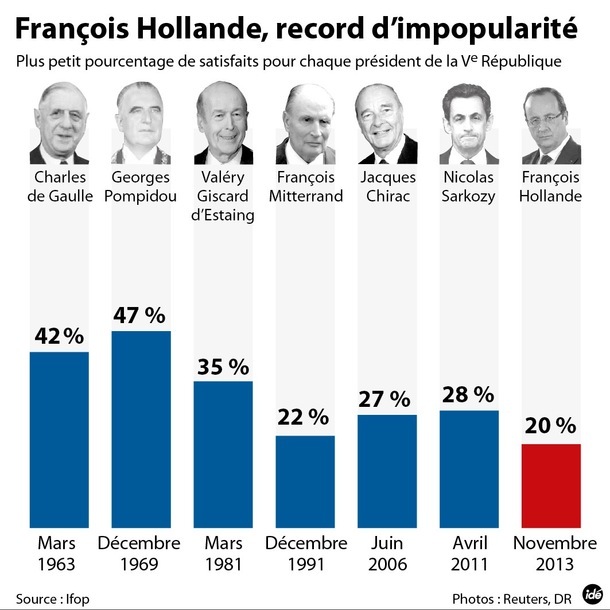
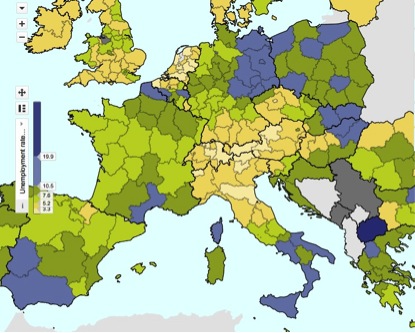
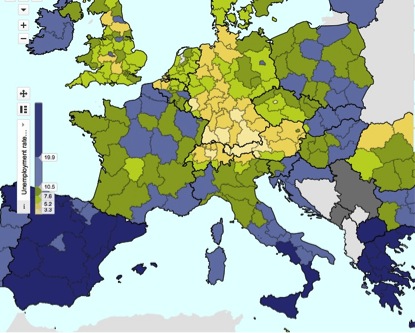
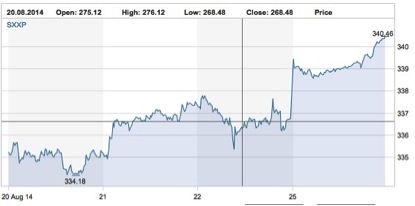
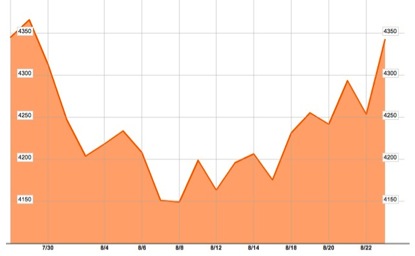
Dear Bill
Can France abandon austerity policies on its own without leaving the Eurozone first? Aren’t the dissenting ministers advocating incompatible policies, that is, rejection of austerity but continued membership in the Eurozone?
Regards. James
Dear James Schipper (at 2014/08/26 at 19:26)
That is a good question. Technically no. But it would be 2003 all over again and as the second-largest country in the zone, they would force another crisis and the rules would give for sure.
But it would be better if they just said they were leaving and be done with it.
best wishes
bill
I suspect the rich residents of the UK and France have too much to lose if the eurotrashsystem of overproduction comes a cropper.
Their physical economies now have developed under a structure of absorbing chiefly eurozone luxury or absurd value added products while the village / market town economy of basic goods production is now not even a memory for most.
Me thinks Bill constantly overestimates the value of labour in the modern economy.
If either economy was even vaguely to become a national economy again the massive overinvestment in London or Paris (at the moment absorbing the declining surplus from the wider euro hinterland) and the rewilding or Disneyfication of the French hinterland would no doubt cause a total collapse of present commerce which will most likely lead down into unpredictable avenues.
Bring it on I say but the excrement will hit the fan in so many different interconnected areas that it will make prediction beyond a certain point impossible.
The lack of token problem over many many decades in the French hinterland has caused a total collapse of all rational commerce.
Token efforts (pardon the pun) of introducing 1 euro rail transport to now tourist lines between Carcassonne to Quillan will not cut it.
The damage cannot be reparied.
The culture is dead.
“And several notable economists…” It would help to have a couple of names at least; otherwise this is comparable to Fox news’ et al “several experts state.”
Hollande’s conduct reminds me of a quote from Lunchlady Doris in the Simpsons:
“The staff have been complaining about mice in the kitchen – I need new staff.”
Mick,
Plan B: how leaving euro can save Ireland. Our current economic problems didn’t begin with the debt crisis but have their roots in decision to join eurozone, says Cormac Lucey, Wednesday 27 August 2014
Leaving the euro: A practical guide. A submission for the Wolfson Economics Prize MMXII by Capital Economics. Lead author: Roger Bootle (PDF 2012)
The Eurozone needs exit rules Cezary Wójcik, Christian Fahrholz 31 October 2011 vox eu
“International Monetary Fund chief Christine Lagarde, one of the world’s most powerful women, has been charged with “negligence” over a multi-million-euro graft case relating to her time as French finance minister.”
I’m surprised this has taken so long (actually, I shouldn’t be surprised).